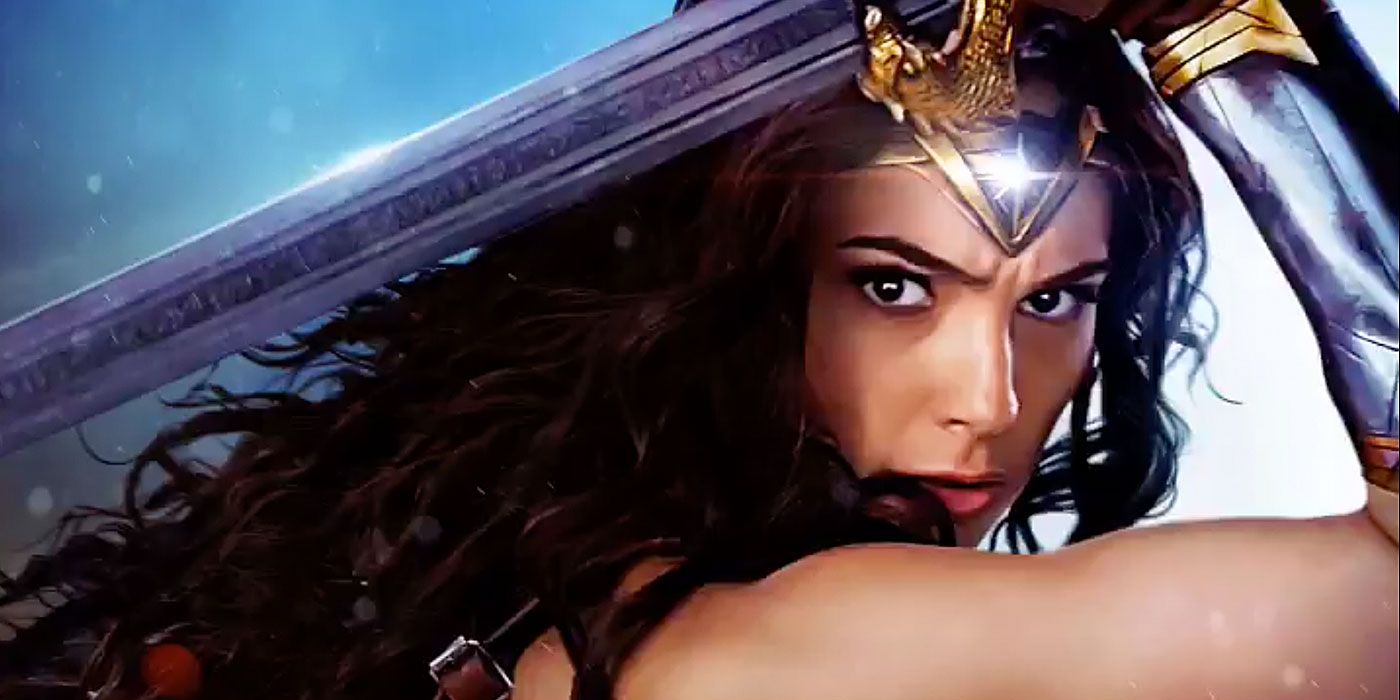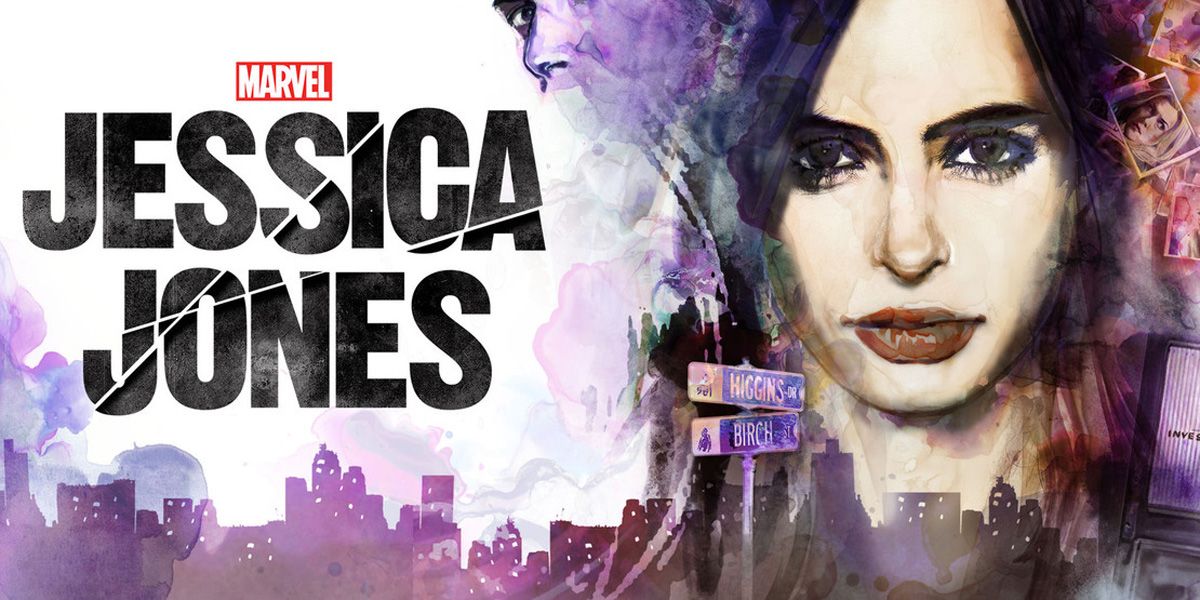In June, fans will see the first female-led film of the new comic book movie era (marked by the arrival of the Marvel Cinematic Universe with 2008's "Iron Man") when Patty Jenkins' "Wonder Woman" explodes on the big screen. Early footage from the movie has been met with approval, offering lucky audiences a glimpse of Gal Gadot as Diana Prince/Wonder Woman, meeting Steve Trevor (Chris Pine) and navigating her destiny as an Amazon princess seeking justice for the newly discovered world of man. But a decade after director Jon Favreau first introduced Marvel's Iron Avenger, we must ask the question: Why did it take so long to get a movie with a lead superhero young women can look up to and relate to?
RELATED: Wonder Woman Director Weighs In On Whedon’s Batgirl
That's not saying young women can't feel a connection to male-driven films, but let's be real; in a time where statues are placed on Wall Street to remind women that they are empowered, it's not a question of feminism anymore, but one of cinematic equality. Over the last 10 years, Marvel Studios has resented strong female characters in ensemble movies -- Black Widow, Gamora, Pepper Potts and Peggy Carter, to name a few. Each has been a woman of authority, yet none have commanded a true cinematic lead role due to shared screen time. Come 2018, we'll be getting "Ant-Man and the Wasp" where Evangeline Lilly gets to reprise her role as Hope Van Dyne, the daughter of original Ant-Men Hank Pym, and "Black Panther," where T'Challa's sister Shuri is expected to show her royal clout, possibly even donning the Black Panther mantle herself a la her comic book counterpart.
This is a great development for Marvel fans who've seen movies usually based around the trinity of Tony Stark, Captain America and Thor, and have been hungry to see other character utilized as more than a supporting cast. Remember, after you throw in Hulk and the other Avengers, you've got Maria Hill fighting for scraps of screen time with Black Widow. And then there's the recent addition of Scarlet Witch, who first came off as unstable and then shifted to someone filled with self-doubt, before being jailed thanks to Iron Man's superiority complex -- again, a character that's not much of someone to look up to... yet.
2019 will provide an even bigger breath of fresh air; Marvel's first solo female-led film, "Captain Marvel," brings Brie Larson to the table in the title role of Carol Danvers. It's great news in a time of growing diversity, a film who's existence paints an optimistic picture, even if it's a small one, and one that comes a bit late. Better late than never, though, and if "Captain Marvel" lives up to the bar set by Marvel's previous films, we should expect to see much more of her, and other female heroes, taking the helm in future films.
On the small screen, "Agents of S.H.I.E.L.D." has done a better job with Chloe Bennet as Quake and Ming-Na as Agent Wen leading Marvel's female hero brigade, alongside Peggy Carter who actually led her own series for two seasons. Jessica Jones (again, leading a series), Misty Knight, Claire Temple and Colleen Wing have represented Marvel's female characters on the Netflix side of things, often in supporting, yet key roles. The expanded success of women on Marvel Television begs the question, are female-centric stories seen as something that plays better outside of cinema? Are studios wary of films with a female superhero lead due of older flops such as Halle Berry's "Catwoman" and Jennifer Garner's "Elektra?" Or is it that writers are afraid of getting the characters wrong? Almost all "Fantastic Four" movies have failed to make Sue Storm a genuine force to be reckoned with, and the various "Spider-Man" franchises seem to almost pride themselves on using (an reusing, and reusing) the damsel in distress trope. In some ways, Hit-Girl is the female character most presented as a legitimate hero, but there's no way she's someone for young girls to look to for personal inspiration.
Joss Whedon’s Batgirl Film Based on Hero's New 52 Incarnation
Television does seem to be where comic book women are more prominent in the cast and plot. "Arrow," again, is a fine example, illustrated through characters like the Lance family, and the al Ghuls. We've seen this on The CW since the "Smallville" days, and "Legends of Tomorrow" and "iZombie" continue the network's tradition of female characters in prominent and important roles. AMC's "The Walking Dead" makes it a regular point to focus on and drive home the fact that you don't mess with Carol or Michonne!
There is a big difference between most of these television heroes and those on the big screen, of course; most of these women are, to be honest, pretty dark. While Zack Snyder didn't really paint Wonder Woman as much more than a warrior in her "Batman v Superman" debut, director Patty Jenkins is set to humanize her like we've never seen before. She plans to show her as a woman, not just a fighter.
It's important to remember that the DC Extended Universe is, in its early days, far from perfect, but i's also important to see where it's getting things right. It did improve on the '70s take on Lois Lane as a reporter that couldn't spell, after all. Snyder strengthened Lois, presenting her as Superman's rock, more than simply a victim that needed saving. Yes, he dropped the ball on Tao Okamoto's Mercy Graves, ignominiously killing Lex Luthor's bodyguard off in "Batman v Superman," but then again, we're talking heroes right now, not villains.
With "Justice League" arriving in November, fans hope to see hints of some other female superheroes make their presence known on the big screen. Most theories are focused on Hal Jordan, John Stewart, Guy Gardner or Kyle Rayner appearing as Green Lantern in the film, but wouldn't it make more sense to introduce Jessica Cruz in the role? We're not saying forget about Hal, Guy and company, but wouldn't it be great if young women had a GL to look up to, not to mention help balance out the already testosterone-heavy team?
The question, of course, is rhetorical, but we'll answer it nonetheless. Yes -- yes, it would be great. Here's hoping it happens.


